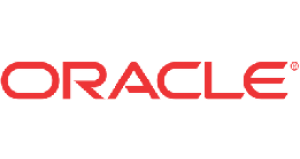The Zillancer Hub has the ERP freelance experts to assist you with any ERP requirement.
Sign-up and post your ERP Project
Why Retail Companies need ERPs

Integrated Data Management
Retailers deal with vast amounts of stock, spanning multiple categories, brands, and store locations. An ERP provides real time insights into inventory levels, ensuring that stock is optimized, overstock situations are minimized, and stockouts (running out of a product) are prevented. This leads to efficient inventory turnover and reduced carrying costs.

Unified Omnichannel Experience
In retail, businesses often operate across various channels physical stores, online platforms, mobile apps, and more. An ERP integrates these channels, ensuring a consistent shopping experience for customers, regardless of how they choose to engage with the brand. This integration is crucial for maintaining customer loyalty and brand consistency.

Streamlined Supply Chain
The retail supply chain involves multiple entities suppliers, distributors, transporters, and the retailers themselves. An ERP system streamlines the entire supply chain process, from order placements with suppliers to final product delivery to customers, ensuring efficiency and reducing lead times.

Enhanced CRM
Modern ERP systems often come integrated with CRM modules or can seamlessly integrate with standalone CRM solutions. For retailers, this means a better understanding of customer behaviors, preferences, and purchasing histories. Such insights allow retailers to personalize marketing efforts, offer targeted promotions, and improve overall customer service.

Data-Driven Decision Making
Decision-making in retail needs to be quick and informed. ERP systems offer real-time reporting and analytics tools that provide insights into sales trends, customer behaviors, product performance, and more. Retailers can leverage these insights to adjust strategies, predict market changes, and identify opportunities or challenges early on.
Top 5 ERPs Tailored for the Healthcare Industry

SAP Retail:
A part of the SAP suite, SAP Retail offers functionalities specific to the needs of the retail industry. It provides solutions for merchandising, supply chain management, store operations, and omnichannel commerce, ensuring real-time insights into inventory, sales, and customer data.

Oracle Retail:
Oracle offers a suite of applications tailored for the retail industry. These solutions encompass everything from merchandising, supply chain, and stores to e-commerce and customer insights. Its advanced analytics also enable retailers to predict market demands and adjust strategies accordingly.

Microsoft Dynamics 365 Commerce:
This solution by Microsoft is designed to cater to both in-store and online retail operations. It integrates physical and digital channels, providing unified commerce across all channels. With AI-driven insights, it also offers personalized shopping experiences for customers.

NetSuite for Retail:
Offered by Oracle's cloud division, NetSuite for Retail is a cloud-based solution tailored for retailers. It provides a 360-degree view of customers and integrates e-commerce with physical store operations. Its unified platform aids in inventory management, financials, and customer relationship management.

Epicor Retail Solutions:
Epicor offers a comprehensive suite for the retail industry, catering to everything from merchandising and store operations to e-commerce and analytics. Their solutions are scalable, ensuring they meet the needs of both small retailers and large enterprises.
Sign Up and post your ERP project
Why Choose the Zillancer Hub?
Why Choose the Zillancer Hub?

Cost Efficiency
Engaging freelancers through the ERP freelance hub typically results in substantial cost savings. Without the overhead costs associated with traditional service providers, such as employee salaries, benefits, office space, and utilities, customers can allocate their budgets directly to the work at hand. This streamlined model allows businesses to get the same or even better quality work at a fraction of the price.
Speed & Flexibility
Given the vast pool of freelancers available on the platform, customers can quickly find experts tailored to their specific project needs. This means projects can commence almost immediately, without the usual delays associated with hiring processes or coordinating with agencies. Moreover, the flexibility of working with freelancers means that projects can be scaled up or down as needed, without the constraints of traditional employment contracts.










